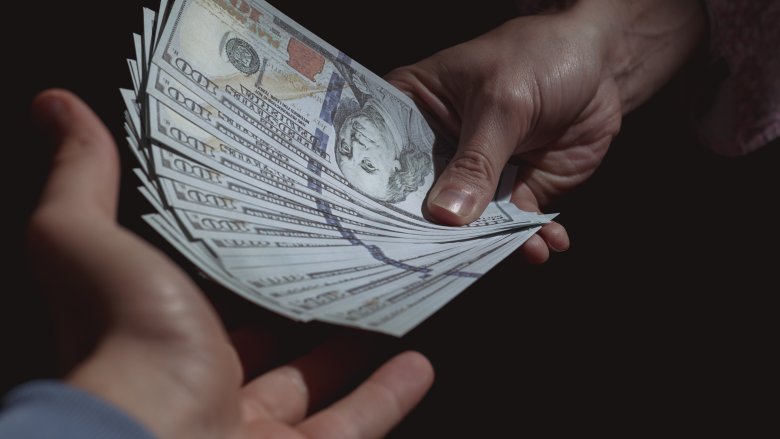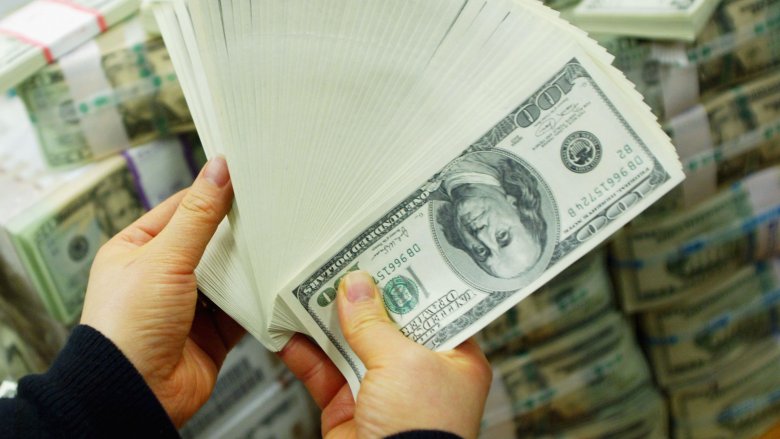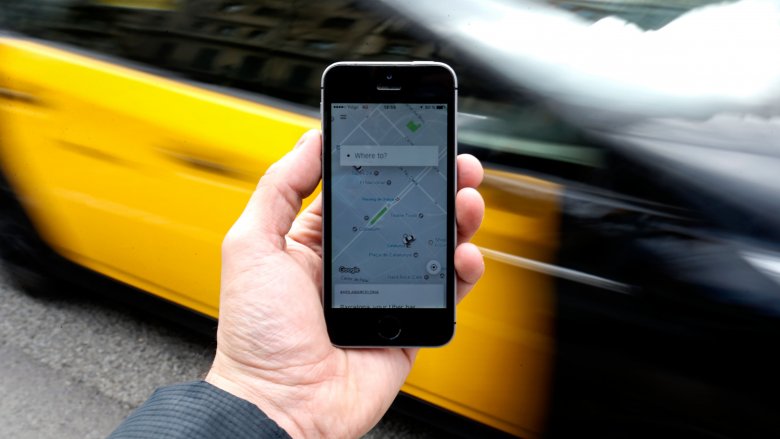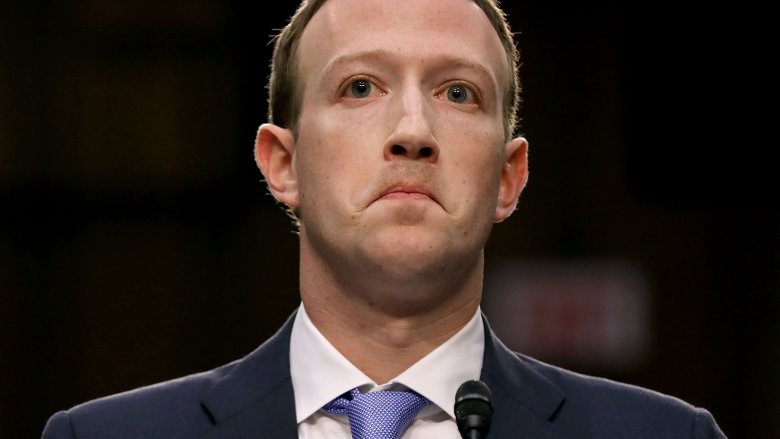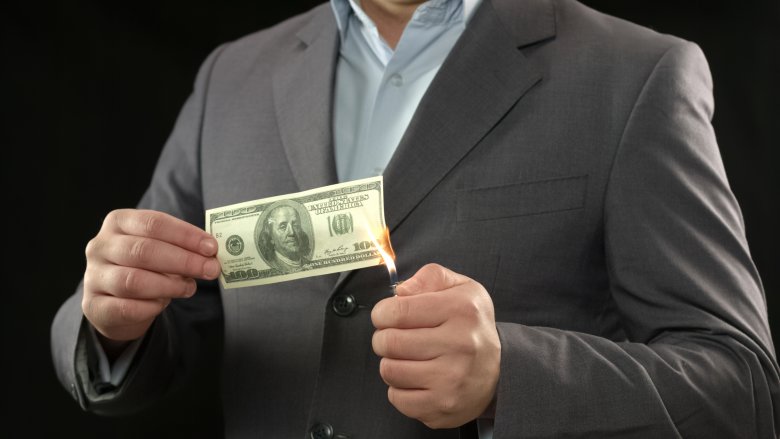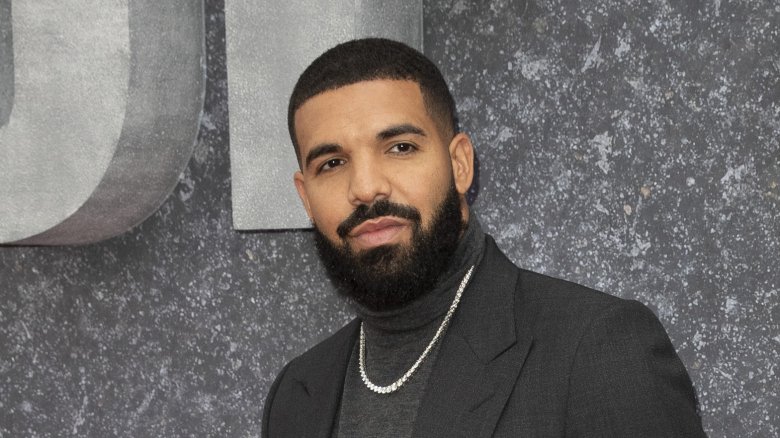The Biggest Scandals To Hit Spotify
Thanks to Spotify, listening to your favorite tunes has never been easier than it is today. From the hottest chart hits at any given moment to obscure indie bands from the other side of the world, virtually all the music you could ever want is at your disposal with a few taps of the touchscreen.
Spotify's concept sounds so good that you can't help but wonder where the catch is and just how horrible it will turn out to be. Unfortunately, that's a pretty correct instinct. In its quest to bring its users a cheap, vast selection of musical delights, the streaming service has adapted a whole host of business practices some might call suspicious or even downright unethical. A lot of these practices have been found out, and as a result, the company's good name has been marred by numerous scandals that stained their slick user interface with a layer of controversy. Here are some of the biggest scandals to hit Spotify.
Spotify's playlist black market
Getting on one of Spotify's popular playlist is one of the best ways for musicians to get their songs out there. Unfortunately, there's a shadow industry that acts as a gatekeeper between music makers and those coveted playlist spots. According to a 2018 article by the Daily Dot, third-party companies have turned playlist access into a booming business not unlike "payola" — the old, illegal practice where record labels paid for radio airplay. Companies like SpotLister curate musicians' songs in order to find out what playlists they are best equipped for, and then secure a place on said lists ... which can cost thousands, depending on the desired visibility. There are also services that offer fake playlist followers and inflated streaming numbers to make lists seem more prestigious and songs appear popular. You can even buy a service that specializes in uncovering these fake figures.
Spotify itself has little part in all of this, and the Daily Dot reports the streaming service even cut SpotLister off for failing to comply with their terms of use after the company's actions came to light. However, this is unlikely to do much in the grand scheme of things. According to Billboard, record company executives have been paying for playlist adds for years, and Spotify didn't really care about this until 2015, when it updated its terms of service to prohibit "accepting any compensation, financial or otherwise, to influence ... the content included on an account or playlist."
Spotify's shady user data business
Remember Facebook's Cambridge Analytica data scandal in 2018? As CNBC reminds us, it revolved around an incident where the eponymous consulting firm allegedly harvested data from around 50 million Facebook profiles using an app called "thisisyourdigitallife." In 2019, it transpired that Spotify may have been experiencing similar issues. The scandal, which Techcrunch calls "Cambridge Anamusica," revolved around an investigation by Billboard's Micah Singleton, who discovered that the streaming service allows major labels such as Sony to happily collect all sorts of Spotify user data, which enables them to view and even control your account by, among other things, removing or adding music to your library or controlling who you follow.
This user tracking comes from record company "pre-save" apps, which allow you to save upcoming music to your library ... and, as per terms of use, allows the company to mine all sorts of data from your profile for marketing purposes, and even theoretically control your playlists to the point that they can forcefully make you unfollow artists of competing companies. Allowing this kind of "data abuse" may be a risky thing for Spotify, especially when its closest competitor, Apple Music, is famous for its ardent approach to matters of privacy.
Spotify's unpaid royalties
In early 2018, Spotify found itself in the middle of a potentially expensive mess. According to the Guardian, the company was sued for owing a whopping $1.6 billion in "unpaid royalties" for artists such as The Doors, Janis Joplin, Neil Young, and Tom Petty. Oh, and this was what the were said to owe just one company. The alleged unpaid nine-figure bill would all go to a Californian music publishing company called Wixen, which controls the royalty streams of those artists.
The US Copyright Act gives a song two different copyright claims: Recording and composition. Wixen claimed that the composition claim needs to be dealt with by notifying the songwriters in question with actual paper letters in order to get "a direct or compulsory mechanical license" to play their music. According to them, Spotify failed to do this, and since the company has played over 10,000 of their songs under a deal that only covered the recording rights, Wixen responded with a lawsuit that sought damages of $150,000 per song.
So, how badly did it all go for Spotify? As the Verge tells us, we'll probably never know, seeing as the companies settled the lawsuit in December 2018. What's more, the new Music Modernization Act laws removes the requirement for these "notice of intent" letters for songwriters, so chances are the streaming service won't have to deal with this sort of costly problem ever again.
Spotify allegedly games its own system with fake artists
Since 2016, various reports by Music Business Worldwide, Verge, and Vulture have heavily insinuated that Spotify may not be content with merely hosting other people's work. In fact, the streaming giant might be paying their own "in-house" musicians and producers to create Spotify-owned songs, which the company then promotes and sticks on its super-popular playlists. This would save the company a truckload of money, as the presence of these "filler" tracks on playlists would enable Spotify to dodge royalties and licensing since, well, the songs are theirs. In 2017, Music Business Worldwide even released the names of 50 suspected "fake" bands and artists that, according to them, are actually Spotify stooges. Most of them have millions of streams to their (allegedly fake) name.
Spotify has emphatically denied all allegations of artificial artist manufacture, but it doesn't look like they convinced the music industry. In 2019, Rolling Stone pointed out that the suspected fake artists have a combined 2.85 billion Spotify streams ... and hinted that record company giants, having expressed distaste for Spotify's "fake artist" practice for years, may have decided to get in on it by starting to manufacture their own in-house music as well.
Spotify's embarrassing Uber partnership
In 2017, Spotify found out firsthand why mom always tells you not to hang around in bad company. As Verge tells us, the streaming service had enjoyed a fairly close partnership with another modern app giant, Uber, since 2014. However, the ride-hailing service eventually proved to be the corporate equivalent of that one friend who always ends up in trouble. After a torrent of Uber scandals that involved accusations of sexism, lawsuits, attempts to dodge regulations, and even CEO Travis Kalanick insulting one of his drivers on video, Spotify was forced to take a long, hard look in the mirror and decide whether they really wanted the partnership anymore.
Spotify seems to have seriously considered ending Uber's access to API (which allows the passenger to use their phone to control the Uber car's soundsystem). They ultimately decided to remain with Uber regardless of the scandals, but the streaming giant did point out that it wasn't exactly the easiest decision they've made. As their head of product, Gustav Söderström, put it: "Even staying on Uber is not a straightforward decision. But it also doesn't feel right to punish our users by pulling support for the API. I'd rather try to change behavior by participating and showcasing what we believe in."
Spotify and the Facebook scandals
The year 2018 was a terrible one for Facebook. The social media giant suffered a conga line of humiliations, with scandals flying in from every direction. As Gizmodo tells us, even the weeks before Christmas brought the company no reprieve. Just two weeks before the end of the year, the New York Times revealed that Facebook had been giving user data access to "select corporate partners," such as Netflix, Amazon, Microsoft, Sony ... and Spotify. This particular breach of user privacy was a notably well-placed blow below the belt, because not only did Facebook give everyone's favorite giant corporations free access to your contact lists — it even allowed Spotify and Netflix (and, for some reason, the Royal Bank of Canada) to read your private messages with zero consent.
In all fairness, Spotify, Netflix, and the Royal Bank of Canada all said they never knew that Facebook was giving them that much access, which presumably means that your streaming service hasn't read that message you're thinking of right now. Then again, isn't that exactly what you'd expect them to say?
Spotify's one-day privacy policy reform
User privacy is a difficult goal when your business revolves around recommending music based on your users' listening habits. This means that a company like Spotify basically needs to collect at least some user data. Unfortunately, "some" is a fickle concept, and as the Independent tells us, Spotify once seemingly decided that they'd actually like to have access to pretty much all of your data, including whatever photos and files you happen to have on your phone.
When the company released a new privacy policy in 2015, its terms and conditions included the worrying lines: "With your permission, we may collect information stored on your mobile device, such as a contacts, photos, or media files." The brave new phrasing lasted all of a day, as the company promptly discovered that its users not only read the fine print, but deemed the new access requirements nothing short of "creepy."
The backlash forced Spotify CEO Daniel Ek to release a statement that was simply titled "SORRY." Ek promised that the app wouldn't use any of your pictures, let alone location or microphone, without specifically asking you first, and the company went back to the terms and conditions drawing board.
Spotify's artist compensation troubles
Many artists have grumbled about Spotify's unfair compensation practices, and when you look at the figures, it's easy to see why. We often imagine that popular musicians are rolling in money, but very little of that cash comes from streaming service royalties. In fact, Mashable tells us that in January 2018, the streaming service used to pay so little for the artists that a songwriter would have needed around four million streams per month just to make the minimum wage in the state of California.
It took an actual court ruling in 2018 to hike the compensation up, and these days, Spotify has to pay the publishers around 15 percent of the revenue their songs generate. Unfortunately, the actual artist still sees very little of that money. Digital Music News reports that in 2019, the musician gets an estimated $0.00473 per Spotify play, meaning that an artist would need 336,842 total plays just to make the US monthly minimum wage, $1,472.
Spotify is bleeding money
Have you ever wondered how Spotify's business model can be profitable? After all, they're bringing you millions and millions songs, for the measly cost of a few bucks per month? Turns out, Spotify hasn't figured that out either.
As Digital Music News tells us, Spotify has burned money by the truckload throughout its existence. Reuters notes that the company turned its first ever profit in the last quarter of 2018, and immediately followed this announcement with a warning that 2019 was likely to be just another year of net loss. Looks like they were right, too, as DJ Mag tells us the company lost $159 million over just the first quarter of 2019.
The streaming company has been quite open about gunning for growth over profits, but as USA Today points out, this may not be such a great idea in the long run. In 2017 alone, Spotify lost $1.5 billion, and the fact that the company is required to pay more and more compensation for the music doesn't bode well for it — or, for that matter, the future of streaming service business in general. After all, Spotify is the market leader and still fails to bring in the big bucks. Loup Ventures analyst Gene Munster has suggested that the entire business model might be flawed, and music subscription services are simply not profitable. "It's hard to see how they will make money," he says.
Spotify pays big bucks to major labels
As Techcrunch tells us, Spotify operates at a loss. Digital Music News reports that the artists aren't exactly getting rich on streaming royalties, either. So what's the catch? Who gets all the money?
Record labels, that's who. According to Music Business Worldwide, major labels are rolling in more and more streaming dough by the year. In 2018, the "Big Three" labels (Sony, Warner, and Universal) raked in a ridiculous $6.93 billion in streaming service revenue, which was a $1.5 billion increase from the previous year. As Rolling Stone notes, this means that streaming brings major labels a very respectable $19 million every day. Streaming is, in fact, so profitable to the three big labels that it was well over half of their combined total 2018 revenue, which was $13.14 billion. The Recording Industry of America has gone even further by stating that streaming currently generates an estimated 75 percent of all music industry revenue.
High-profile artists keep rebelling against Spotify
Musicians have been known to see Spotify as a controversial platform, and many major artists have rebelled against the company for various reasons. As Time tells us, Taylor Swift notoriously pulled nearly all of her music from Spotify in 2014, which NME reports was caused by her view that "music shouldn't be free." The CEO of Spotify eventually managed to convince her to return, but she's just one of the many high-profile stars who have taken a stance.
According to the Guardian, Coldplay and The Black Keys have both kept some of their albums away from Spotify's reach. Consequence of Sound tells us that the prog-metal giant Tool opted to keep entirely away from the streaming service until 2019. However, arguably one of the most notorious anti-Spotify forces has been Radiohead. As Quartz tells us, the band — and its frontman Thom Yorke in particular — openly feuded with the platform for years. Yorke has compared Spotify to "the last desperate fart of a dying corpse," and openly criticizing its business practices. Radiohead's output eventually started making its way to Spotify in 2016, but industry insiders reported this was more of a truce than a band surrendering to the inevitability of streaming. Sources say that Spotify and Radiohead had been deep in negotiations, and that the band's decision to extend a hand to the company was a show of support to Spotify's plans to start paying artists more.
Spotify's "Drake everywhere" mode
In 2018, Drake was everywhere with his new album, Scorpion – and as the BBC tells us, this applied tenfold for some Spotify users. According to disappointed premium users, the streaming platform decided to promote the album by sticking Drake's face on "hundreds of playlists," regardless of whether they actually featured his music or not. Reportedly, the Canadian artist's visage even made it to absurdly inappropriate settings, such as the "Best of British" playlist.
Since Spotify Premium subscribers literally pay to keep their accounts ad-free, this did not go over particularly well with some users and complaints ensued. The company seems to have dealt with them on a case by case basis, as the Spotify customer support treated some of the complainers with sympathy and offered a one-month free subscription, while other Drake-addled users were left empty-handed. Spotify "declined" to give the BBC a comment about the Drake takeover (Drakeover?) incident, but it's possible they weren't too bothered about a few unhappy Premium customers. After all, Scorpion was a massive streaming success, breaking records on both Spotify and Apple Music with over 302 million streams ... in a single day.

